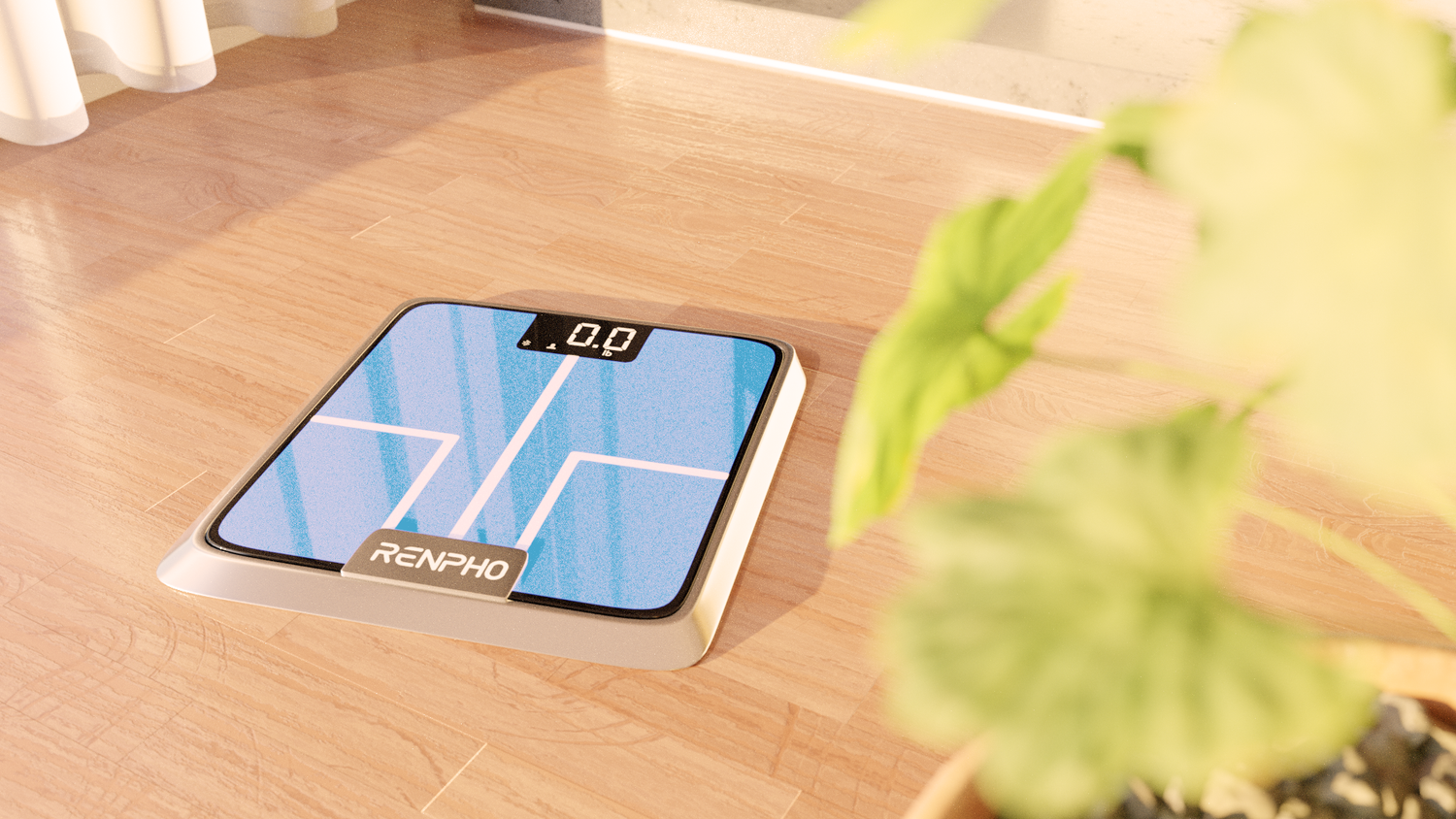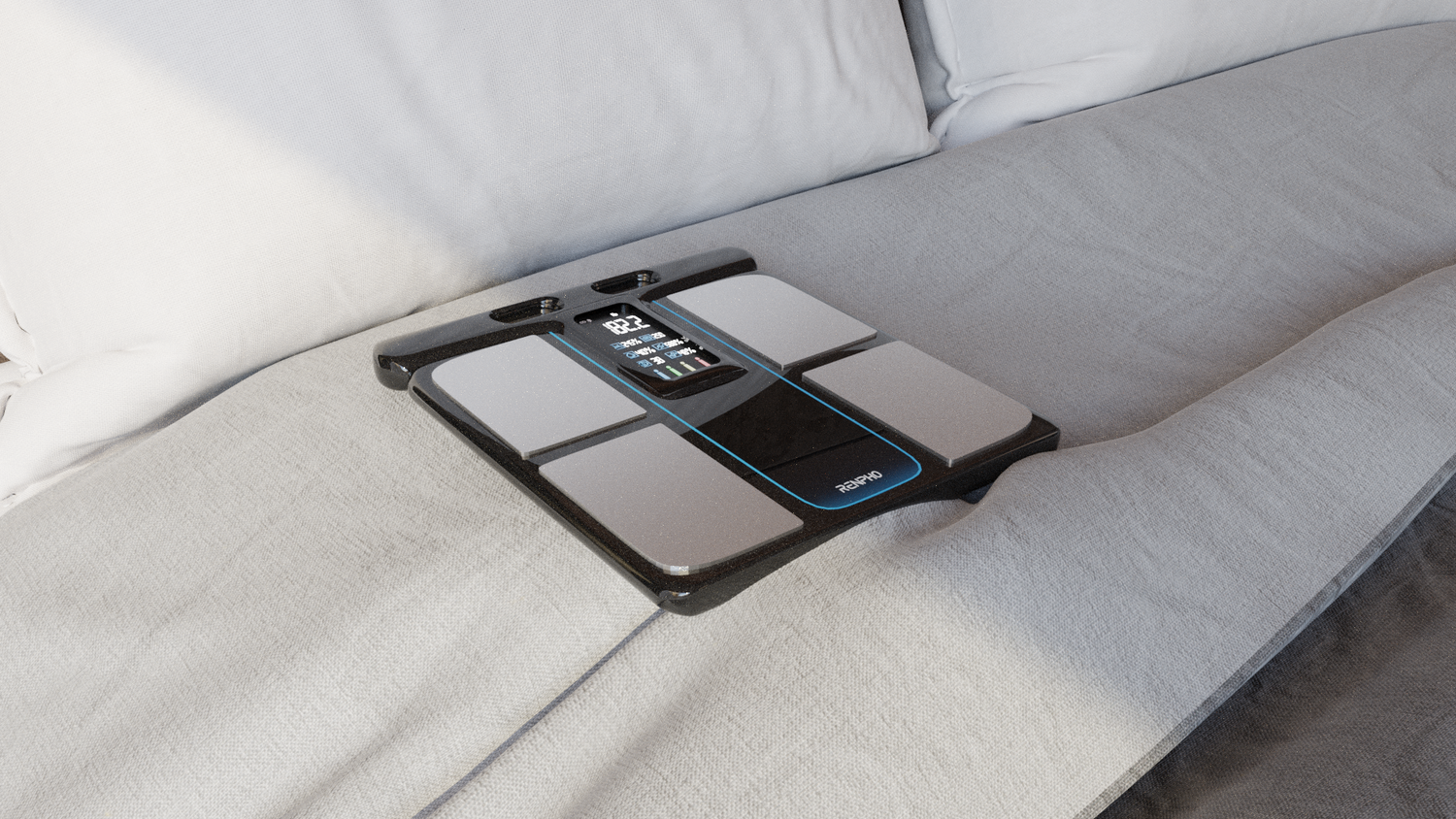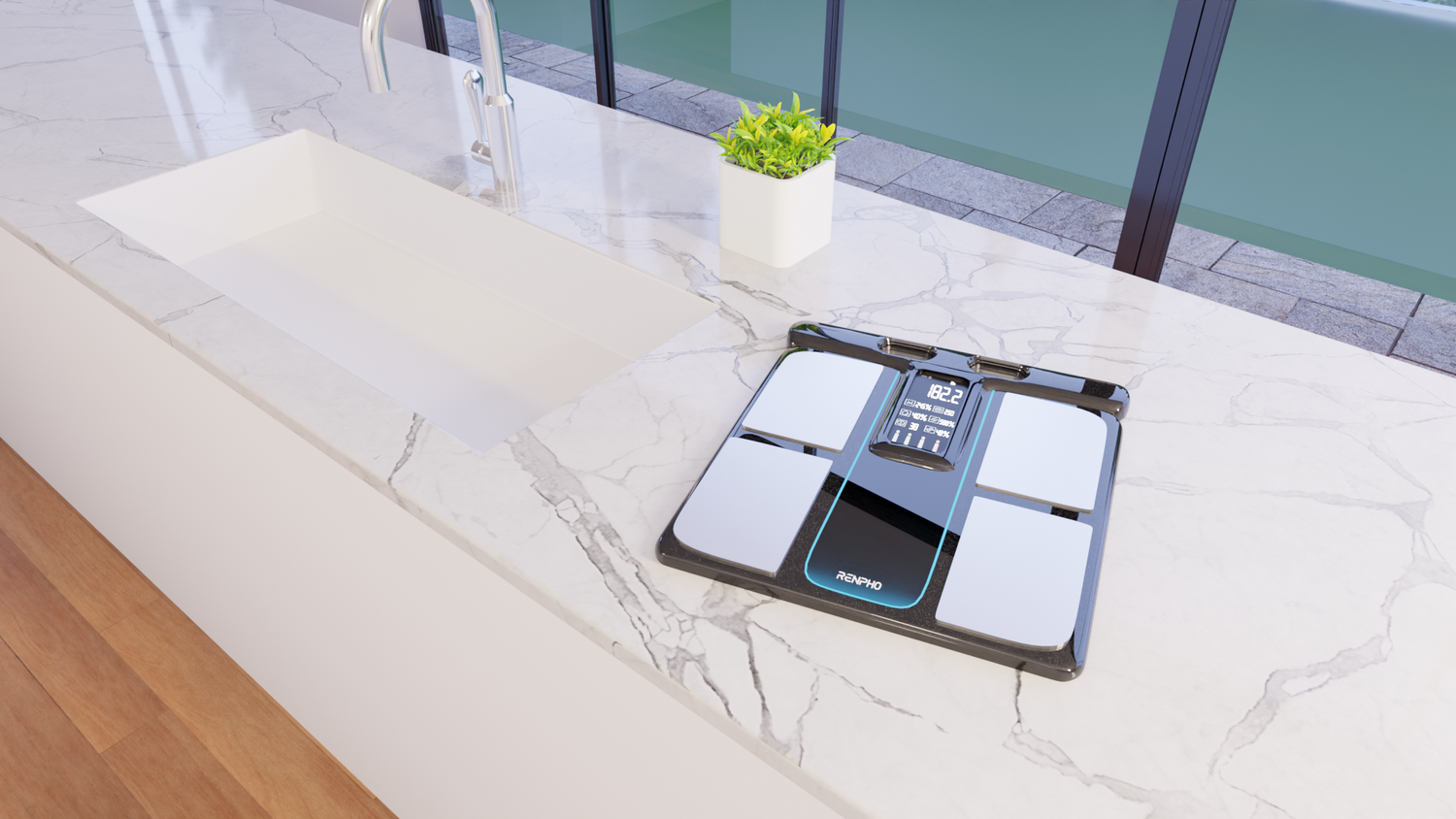Embarking on a fitness journey is an exciting yet challenging endeavor, and one of the essential tools you'll need along the way is a reliable weight scale. Remember, tracking your weight not only helps you monitor progress but also provides valuable insights into your overall health and wellness. However, with the number of options available—ranging from traditional analog scales to cutting-edge smart devices—choosing the right weight scale can be overwhelming.
But fret not as we’ll break down the different types of scales, key features to consider, and tips for making an informed decision that aligns with your fitness goals. Let’s check out and find the perfect scale to support you on your path to better health!
How Weight Scales Help You with Your Fitness Journey?

Weight scales are more than just tools for measuring body weight; they serve as valuable allies in your fitness journey. Regularly weighing yourself helps you monitor changes over time, allowing you to see trends that provide motivation and insight into how your body responds to different diets and exercise routines. By using a scale, you can establish realistic and achievable weight goals, whether you're aiming to lose, gain, or maintain weight, and having a clear starting point enables you to create a tailored fitness plan.
Additionally, regularly using a weight scale fosters accountability. When you track your weight consistently, you're more likely to stay committed to your fitness routine and make healthier choices. Scales can also reveal patterns in weight fluctuations that may correlate with specific habits, such as diet changes or exercise frequency, helping you make informed adjustments to your lifestyle. Many modern scales offer additional metrics, such as body fat percentage, muscle mass, and water weight, providing a more comprehensive view of your health and fitness.
While the scale is a useful tool, it's essential to remember that progress isn’t solely measured by weight. A scale can help you celebrate non-scale victories, such as improved fitness levels, increased strength, or better endurance. Seeing positive changes on the scale can boost your motivation and encourage you to continue your fitness journey, while plateaus or setbacks can prompt you to reassess your strategies and make necessary adjustments. Incorporating a weight scale into your fitness journey offers valuable insights and support, enhancing your overall health and helping you stay motivated as you pursue your fitness aspirations
What are the Types of Scales Available?

When it comes to tracking your weight and overall health, various types of scales cater to different needs. Analog scales use a dial and pointer to display weight, offering a simple and battery-free option, though they may be less precise than digital models and can be harder to read. Digital scales, on the other hand, provide a numerical readout, often featuring larger displays for easier visibility, and many come equipped with advanced features like memory functions to help track progress over time.
For those interested in a more comprehensive view of their health, body composition scales measure not only weight but also metrics like body fat percentage, muscle mass, and water weight through bioelectrical impedance analysis (BIA). Smart scales take it a step further by connecting to mobile apps via Bluetooth or Wi-Fi, allowing users to track their weight and body composition over time while syncing data with fitness trackers and health apps.
While not designed for body weight tracking, kitchen scales are essential for those focused on nutrition and portion control, helping to measure ingredients accurately for meal planning and calorie tracking.
What are the Essential Features to Look Out For in a Weight Scale?

When choosing a weight scale, several key features can enhance your experience and help you achieve your health and fitness goals. First and foremost, it's essential to look for accuracy and precision; a reliable scale provides consistent readings, and digital models typically offer greater precision than analog ones. Additionally, ensure the scale has an appropriate weight capacity, as most household scales support up to 300 pounds, while some models are designed for heavier weights.
A clear and easy-to-read display is crucial, with digital scales often featuring larger, backlit screens for better visibility. If you’re interested in more than just weight, consider a scale that provides body composition metrics, such as body fat percentage, muscle mass, and water weight, offering a more comprehensive view of your health. Smart technology integration can also be beneficial; smart scales connect to mobile apps via Bluetooth or Wi-Fi, allowing you to track your progress over time and sync data with fitness trackers.
For households with multiple users, look for scales that allow you to create individual profiles, enabling personalized data tracking. Many digital scales come with a memory function that stores previous measurements, making it easier to monitor your progress. Additionally, consider the scale's durability and design; a sturdy, well-constructed scale will last longer, and a sleek design can complement your home decor.
Check the battery type and life; rechargeable scales can be convenient, while those using standard batteries should ideally have a long battery life to minimize replacements. Finally, features like auto-on, which ensures the scale activates when you step on it, and auto-off, which saves battery life by turning the scale off after inactivity, can add to the overall convenience. By evaluating these essential features, you can select a weight scale that effectively supports your fitness journey.
Takeaway
A reliable weight scale is a vital tool in your fitness journey, providing essential insights into your health and helping you track your progress effectively. By understanding the different types of scales available and the key features to consider, you can select a model that aligns with your goals and lifestyle. Whether you're monitoring weight, assessing body composition, or simply aiming for better nutritional habits, the right scale can enhance your accountability and motivation. Embrace the journey, celebrate your achievements, and let your chosen scale support you every step of the way toward improved health and wellness.
Renpho Health Tips
-

The Essential Home Companion: Why Every Family Needs a Weight Scale
September 22, 2024
Read more >
-

How to Use a Smart Weight Scale to Foster Mindful Eating and Lifestyle Choices?
September 19, 2024
Read more >
-

From Pumpkin Spice to Body Weight Scale: How to Balance Indulgence and Health This Fall
September 16, 2024
Read more >
-

How the RENPHO MorphoScan Helps You Keep Your Weight in Check
September 9, 2024
Read more >
-

Your Guide to BMI: Easy Monitoring and the Benefits of a Healthy Weight
August 27, 2024
Read more >




































